|
Before we go to the podcast of today, I'd like to thank people who gave feedback about my 6 compositions which were last weekend performed by an orchestra.
Anne wrote: Thanks for sharing these. I love the lush harmonies in these compositions. I listened to all of them. Congratulations – your organ pieces translated well to the orchestral format. Leon wrote: Saw and heard your FB post. Very nice piece of music, and use of the flute. Thanks for these additional details! Irineo wrote: Hello back there, maestro. Thank you so,much for these videos. No. 1 = sweet/tender/interesting (splendid arrangement as well). No. 2 = soft/discrete. No. 3 = serene/laid back. No. 4 = odd/uncommon/for the mind (instead of the heart). No. 5 = ethereal. Noe. 6 = dynamic/fleeting/playful/interesting contrasts (very nice as well). Keep at it, maestro If you missed this post or want to watch the videos again, here it is. And now let's go to the podcast for today. Vidas: Hi guys, this is Vidas. Ausra: And Ausra. V: Let’s start episode 404, of Secrets of Organ Playing Podcast. This question was sent by Sally. And she writes an answer to the question, ‘What did you work on today?’ At the end of each day, students from the Total Organist program, they all get this question, and some of them choose to reply on BaseCamp. So Sally wrote: Unfortunately, nothing. I work during the day as a Software Engineer, and when I got home I was cold and tired. Instead of practicing I ate and slept on the couch all evening. Let's hope I feel more motivated tonight. I need to work on my prelude for this week, and continued work on the pedal studies I started. V: You know what I wrote to her? I wrote... A: No, I don’t know. V: I wrote, I will quote, “rest is good”. Three words only! Would you agree, Ausra? A: Yes. V: Shorter answer, right? A: I think this winter I also rest more than I practice. V: Yeah. If you return home from work really exhausted and tired, I think it’s best to take a rest or take a walk or do something, not too strenuous, physically and mentally too. And plus, since working as a Software Engineer is presumably mental work a lot, in most cases, right? Then organ playing is also mental work. It’s also similar so maybe physical, doing some physical activity is better than continuing mental activity without interruption. Ausra? A: Yes, I think you need to find balance in things because if you do only mental work, only physical work, it won’t be good. V: What would happen if you only did mental work, without any physical activity? A: Well, you muscles would… V: Atrophy? A: Yes. Plus I think you might develop some serious mental problems, too. V: Mental or physical? A: Mental because if you’re doing to much mental work, it might damage your mental health. V: Oh, I thought maybe if I only did mental work then my brain would expand and I would very wise. A: Because I think that physical activity helps to clear your mind. V: Mmmm. I see. A: And to pump blood into your brain too, which is crucial if you do mental work. V: What if I did only physical activity during the day, and no mental work? What would happen then? A: Well, I think it’s healthier than otherwise. V: Yes. A: But, well, if you would do only physical work I think you would forget how to count, how to read, and then you would be in trouble too. V: Right. I would be like hunter-gatherer. Ausra and I, we are listening to audio book called ‘Sapiens’. And it’s like a commentary on the history of civilizations. And yesterday evening we listened to the chapter about the life of, in the day of Adam and Eve, basically, prehistoric times. And those people moved a lot. But they say that they didn’t work too hard, like sometimes people work today—ten or twelve hours a day, in some countries, in the factory for example. In those days, like maybe thirty thousand years ago, they would just work for several hours until they gathered mushrooms and berries and edible roots. A: Snails and frogs... V: Uh-huh. Maybe hunting would require more time, I guess. So, of course, it’s safe to say that I will never become a true hunter or a gatherer in the 21st Century. A: Well, you never know. V: Why? Why? A: Things might change. V: Like internet would disappear? A: Sure, and then you will have to go to the forest to pick up berries and mushrooms. V: And how will we record our podcast conversations then? A: Well, then there will be no podcast conversations. V: The end of SecretsOfOrganPlaying. A: True. V: So, I hope this time will never come, when electricity and internet will disappear, Ausra. A: Well you never know. We might get some strong magnetic storms and internet will be down. V: Mmm-hmm. A: And everything will be down. But anyway, we are just making fun. I think that it’s very important for everybody to find the right balance in their lives, because I think it’s time to work and it’s time to relax. It’s time to practice and it’s time to lay down on sofa. V: You[’re] like citing the bible now. A: Yes. It’s very good actually, story, from Ecclesiastes, yes? V: Mmm-hmm. Cohélet, I think. It’s the same thing but… A: Well, anyway I think, everybody who go to church, knows this story and knows what I’m talking about. V: So, I hope Sally can practice whenever she feels rested and after sleeping and eating, maybe she will get more energy and feel more motivated to practice, right? And maybe tomorrow will be easier day, even at work. You never know how you will feel. Maybe she will have a better rest at night. A: True. V: And then next day will be easier to practice organ as well. Thank you guys for listening and sending your wonderful questions. We love helping you grow. And remember, when you practice... A: Miracles happen!
Comments
Would you like to master Prelude and Fugue in G Major, BWV 541 by J.S. Bach? I have created this score with the hope that it will help my students who love early music to recreate articulate legato style automatically, almost without thinking. Thanks to Jeremy Owens for his meticulous transcription of fingering and pedaling from the slow motion video. Advanced level. PDF score. 8 pages. 50 % discount is valid until February 27. Check it out here This score is free for Total Organist students. On February 16 during Lithuanian Independence Day concert at the Bernardine's church in Vilnius, Vilnius Amateur Symphony Orchestra performed 6 (!) of my organ compositions arranged for orchestra. Today I'd like to share with you the videos of these pieces. Let me know what you think. Thank you everyone for participating! You all made us very happy with your entries. @laputis and I selected the following winners: 1st Place By @contrabourdon: https://steemit.com/secretsoforganplaying/@contrabourdon/secrets-of-organ-playing-competition-week-7 Wow! Very solid articulation and such a lovely organ. I enjoyed it a lot. Can't wait to see what you create next... 2nd Place By @andyradtrad: https://steemit.com/secretsoforganplaying/@andyradtrad/arrangement-of-pyotr-il-yich-tchaikovsky-s-in-church Somber and dark feeling helps to depict the character of this piece. Your arrangement and registration sound interesting. 3rd Place By @savagirl4:
https://steemit.com/secretsoforganplaying/@savagirl4/adagio-from-toccata-adagio-and-fugue I liked a couple of places where you did little flourishes. In fact, this piece has many instances in every measure where more improvisation could be applied. We hope to see even more entries next week! Here's a link for Week 8: https://busy.org/@organduo/secrets-of-organ-playing-contest-week-8 And remember, when you practice, miracles happen! Have you ever wanted to start to practice on the organ but found yourself sidetracked after a few days? Apparently your inner motivation wasn't enough.
I know how you feel. I also was stuck many times. What helped me was to find some external motivation as well. In order for you to advance your organ playing skills and help you motivate to practice, my wife Ausra - @laputis and I invite you to join in a contest to submit your organ music and win some Steem. Are you an experienced organist? You can participate easily. Are you a beginner? No problem. This contest is open to every organ music loving Steemian. Rules 1. It's sort of open mic contest for organ music - no limitation to length, level of difficulty, genre etc. 2. It can be any organ piece, any hymn, any improvisation or any organ exercise. 3. It has to be performed by you without editing. 4. Be sure to clearly state Secrets of Organ Playing Contest, the contest week number, your Steem name, and the random contest entry word of the week. This week's word is "Alarm". 5. Upload your entry to YouTube. 6. Make a post about your entry on Steem. 7. Performance on pipe and electronic organs are valid. 8. Use #secretsoforganplaying as your first tag. 9. Upvote and Resteem this post on Steem. 10. Comment this post on Steem with link to your entry so people can see and listen to it. 11. The contest is open until Monday, February 25, 2019 12:00 PM UTC. Rewards Every participating entry will receive our upvotes. Additionally, 3 winners will be rewarded some STEEM in the following manner: 1st Place: 10 STEEM 2nd Place: 6 STEEM 3rd Place: 4 STEEM Judging @laputis and I will serve as judges. We will pick winners based on what sounded the most interesting and best performed to us. Our goal here is to support the community while motivating you to practice, inspiring to create some amazing music and adding more smiles to everyone's day. Questions, comments, ideas? Please let us know your feedback about this contest. Support our fellow contestants - upvote, resteem and comment their entry to let them know specifically what did you appreciate about their music. Also stay tuned for the post about winners from Week 7! If you would like to participate but don't have Steem account, let me know your desired username by contacting me on my blog [https://www.organduo.lt/contact.html](https://www.organduo.lt/contact.html) and I will create an account for you very quickly. We hope to see even more entries next week! And remember, when you practice, miracles happen!
Before we go to the podcast episode for today, I'd like to remind our listeners that less than 24 hours are left to participate in our Secrets of Organ Playing Contest Week 7. The details are here. Don't have a Steem account? No problem, just let me know your desired username and I will create one for you very quickly.
Vidas: Hi guys, this is Vidas. Ausra: And Ausra. V: Let’s start episode 401, of Secrets of Organ Playing Podcast. This question was sent by Jack. And he writes: Dear Vidas, Today I received "Week 3 of Menuet, Polonaise and March Training". And last week I received "Week 2" But I never received "week 1", so would you send me that? (Frankly, I can't remember ordering this particular course but I welcome it: I am so much enjoying organ playing again thanks to your instructions that I play for hours a day now, really making some progress!) Thank you very much, Jack V: Of course, I send the missing week one, to Jack from Menuet, Polonaise and March Training. I guess this week one is not sent separately. But it’s a part of the registration process. As soon as a person confirms his or her email, a new welcome email is being sent to them, and week one material is presented right away, so maybe it got lost somewhere. And because Jack writes that he can’t remember ordering particular course, I checked and he is our Total Organist student so maybe this is part of his Total Organist training too. A: I guess so, yes, because he’s a Total Organist student. V: I want to focus now our discussion on his final words: “I am enjoying so much organ playing again thanks to your instructions that I play for hours a day now, really making some progress!” Do you think that our instruction and advice is helpful and motivating for some people that much that they can sit down on the organ bench and play for hours a day? A: It seems like it is. It’s sort of when organ really catches you, there is no way to get out. V: It’s like a bug. A: Yes, like that. The deeper you go in, the more you enjoy it and you miss it. V: It becomes part of your life. A: That’s true. V: The way of life you tend to think about the organ during the day, not only when you play it. So then you try to arrange your daily activities around your organ practice too, so that sometimes it might become more integral part of the day, and you try not to miss the days that you practice too. A: True. Because it’s real privilege to be able to play such a marvelous instrument as organ, and to such [a] great compositions, of let say, J.S. Bach, and others. V: And I guess our conversations here as a podcast, also serves this purpose, right? Because we answer questions from people from around the world, and people who listen or read the transcriptions of our conversations can feel connected to the people who ask those questions, sometimes, right? It’s also part of the community. Not only Total Organist community which is smaller, but in larger sense, we have thousands of people who are in our Secrets of Organ playing community. It’s just too bad that they don’t have a reliable way to communicate with each other, as Total Organist people have. Because they sometimes want to discuss or get a score that somebody from the community played, but they then send an email to me, and ask me to ask another person—I’m like a middle man, and I don’t want to be that middle man, right? Because it’s not efficient sometimes because it takes time for me to ask this question and then a person to respond to me and I respond to the original question. It might get even a few days after, before the answer is being sent, right? So, what I created is this Telegram Group for Secrets of Organ playing community. And people who are interested in, can join into the discussions, and chat and connecting to each other. That’s part of the community service too. A: Yes, technology can really make life easier... V: Mmm-hmm. A: To some degree. V: Right. It will not replace email I think and still people will get our podcast conversations through email but it’s just as, it’s another channel to contact each other, people from the community. Right? A: True. V: Right. So, we wish Jack and others who are thinking about sitting on the organ bench for several hours a day, success, but also some patience, because sometimes you get immersed in organ music so much that you forget to breathe, forget to walk, forget to take, to have a drink, or take a pause, right?, to forget to eat. Did I say that before, already? A: Somehow I cannot imagine that you would forget to eat. V: Right. You cannot play with an empty stomach. A: True. V: Not you, I mean, I. A: I know. I know that. V: Can you play with empty stomach? A: Yes, I can. V: You’re different. I’m not saying you are better, you [are] just different. A: I’m not saying I’m better, either. V: Good. Let’s be different then, because our listeners are different too. I appeal to one group of people who like to eat and play, and you appeal to other group of people who like to play without eating. A: Well, I eat but I rather do my work first and then eat. V: But sometimes I also forget to eat, especially when I’m immersed in online activities. When I for example, write a blog post, I sometimes skip lunch too. So maybe I’m changing too. Okay guys, we hope this was useful to you. We really enjoy your wonderful questions and developing this community further. And I guess our newer initiative that started in January, Secrets of Organ Playing Contest, is also part of that, right? Because, Ausra, let’s face it—when you play the organ without any external pat on your back, is one thing, but when you get mentioned and honored in front of everybody for winning the contest, that’s another thing, I guess. We already have two entries for our next weeks contest, and I will see those girls in our Unda Maris Studio on Monday, and I’ll ask them, what was their experience. I’m really curious to know because they seem to be progressing in organ playing much faster now. A: True. Because they have new goals every week. V: Mmm-hmm. So guys, if you want to join Secrets of Organ Playing Contest too, but don’t have account on the Steem Blockchain, just send my your desired username. It could be a combination of letters and numbers. And I will create it for you very easily and send the generated password to you, which you have to keep safe because it is the only way to recover your account. So, and then, we, Ausra and I, will be very curious to know what you come up with in your organ playing entries. We really want to see you succeed in organ playing. And contest like this is part of the plan. Thanks guys. This was Vidas. A: And Ausra. V: And remember, when you practice... A: Miracles happen! SOPP397: I have purchased several of your fingerings of old music and find them extremely useful2/16/2019
Vidas: Hi guys, this is Vidas.
Ausra: And Ausra. V: Let’s start episode 397 of Secrets of Organ Playing Podcast. This question was sent by Rob and he writes: Dear Vidas and Ausra, I have purchased several of your fingerings of old music and find them extremely useful. When I learned to play the organ in the 60s, I was taught a legato style that, for example, discouraged using the same finger consecutively for different notes. It’s liberating to see you doing this all the time, and your method makes my playing feel more natural and more musical. I have two questions. First, is your fingering method standard for 16th-18th c. organ music or is it to some extent personal? Would you and Ausra, for example, come up with essentially the same fingering for any given early piece? Second, following on from that, how important do you think it is for a student to stick closely to your fingerings? Right now I’m learning Bach’s Passacaglia with your fingerings and I like them a lot. But occasionally they lead to my making mistakes that I wouldn't ordinarily make using a more modern style. For example, in mm. 204-7 during the fugue, the left hand has a pattern of arpeggiated 16th notes at intervals of a third, with three descending groups per measure. You finger all three groups 4-2, 4-2, 4-2, which I find hard to play without hitting wrong notes and becoming choppy. It’s much easier for me to use 2-1, 4-2, 5-3. In a case like this, would you recommend that someone try to master your fingerings, as being more authentic and conducive to a better interpretation in the long run, or is it legitimate to adapt them to one’s personal comfort? With thanks and best wishes to you both, Rob V: That’s a very thoughtful response Rob gave us right Ausra? A: Yes, it’s a very nice letter. Answering Rob’s question this fingering that we create, Rob asked if Vidas fingering and my fingering would be exactly the same for the same piece. V: You say it would be exactly the same. A: Well, it would be very similar. That’s what I want to say, that it would be very similar. Maybe they could be different in some particular spots. There might be slight differences but in general I think it would be almost the same or very similar. V: Even though our personalities are different our fingerings are similar. A: Yes, because that’s what baroque music requires and yes, this type of fingering is suited for pieces written between the sixteenth through eighteenth century. Of course you know the more complex music is, Bach for example, the more new ways you have to introduce into your fingering. V: Modern fingering. A: Yes. V: But still avoid finger substitution I think. A: Yes and sometimes if you find a spot which is completely difficult for you to play you might do slight adjustments. About that particular spot in the Passacaglia I think what Vidas meant by making those groups 4-2, 4-2, 4-2 it is that the same intervals are played with the same fingers. In that time it was sort of like a general knowledge because it helps you to articulate because why we need this fingering in order to make Baroque music sound like Baroque music it’s just all based on articulating each note and you could get exactly the same effect with playing and using modern fingering but then you would really have to control yourself very hardly in each measure, in each note. V: Umm-hmm. A: When you are using early fingering then it helps you to do articulation without so much thinking about it. It becomes more natural. V: Yes. A: I don’t know if it makes sense. You can continue my talk. Do you agree? V: I’m looking at this passage in Passacaglia where there are sixteenth note triplets and I write 2-3-4, 2-3-4, 2-3-4. I think this is the spot that Rob refers to because we don’t have measure numbers. A: But it seems like that spot, yes. V: Umm-hmm. The reason I do 2-3-4 is to avoid using the thumb on the sharp keys of the flat keys but in fast tempo you need to be very precise and it’s not very easy. A: And also because you start each triplet with the same finger you have of course to articulate there too. V: Maybe Rob could try the trick that I think is applicable to all organ music in general. Not to lift the fingers off the keyboard. Basically keep them in contact with the keys at all times and therefore the movements will be more economical and maybe more precise, right? What do you think Ausra here? A: Yes, I couldn’t agree more but actually in this spot, yes I would exactly the same fingering that you wrote in. V: Umm-hmm. 2-3-4, 2-3-4, 2-3-4 for the right hand ascending or for the left-hand descending and vice versa. 4-3-2, 4-3-2, 4-3-2 for the right hand descending and left hand ascending. That’s kind of natural to me but if Rob has trouble I think it’s appropriate to change some things to their own hand position but try to avoid finger substitutions, that’s my point. As you said with Bach you can add more modern fingering because he using modern keys and modern figures but still… A: And textures, you need to use almost all fingers at the same time. V: But most of the time you could get away without finger substitutions, most of the time. A: That’s right. Finger substitution in general is not a good thing in Baroque music. V: I have encountered a few places even in Bach where you had to use finger substitution because the texture as you say was like maybe five voices in the hands at the end of the piece you know, not in the middle… A: In cadences where he adds extra voices. V: Then yes but that’s an exception I would think. A: Sure, that’s not a rule. V: Excellent, so that’s the second part of Rob’s question. The first part of his question asks us about if we would use the same fingering for any early piece. I would just add that it depends on the school of composition. The geographical area basically. If it’s Spanish it’s one way, German it’s a little bit different, Italian different, French also should be different because ornaments are different and strong fingers are different. In one area they used 2 and 3 as the stronger fingers and in the left hand they also used 2 and 3. A: But sometimes 2 and 1. V: 2 and 1. A: And actually if you are interested you could study some of iconography related to portative organ. It was very common to paint either Saint Cecelia or angels playing portative organs and sometimes you can see hands very closely and you can even figure out what fingers angel or Saint Cecelia used and it’s a bizarre looking thing. V: I wonder how come there is no iconography of piglets and hedgehogs playing portative organs? A: Probably we never did. V: Maybe they don’t have enough fingers. A: Yes, if you are a pig you only have two fingers so not much of a choice. So natural pair fingering. V: Right. 2 and 3 or 2 and 4. Wonderful guys, please send us your wonderful questions in the future. We love helping you grow. And remember when you practice… A: Miracles happen.
Vidas: Hi guys, this is Vidas!
Ausra: And Ausra! V: Let’s start episode 390 of Secrets of Organ Playing Podcast. And this question was sent by Erika. She writes: Pedalboard on the church organ hasn’t been working for a few weeks. I accompany the piano - the piano is the main instrument. But the organ fills in the bass line and adds depth to the sound. So I have had to find another way to bring out the bass to the best of my ability. What I have done during this time is play soprano, alto, and tenor with the right hand and do the bass in octaves with my left hand, keeping it as legato as I can. It’s been a challenge - kinda figuring things out as I go. Thankful that the organ is not the main instrument - it gives me a bit of space to learn this new way of playing and hide my uncertainties. Thankful also that the organ should be fixed soon. But it has been interesting to have to figure out in a different way what the purpose of the organ is at my church and to find another way to accomplish that purpose. V: Have you ever played, Ausra, like that, in octaves with the left hand, and three voices in the right hand? A: Well, hymns on the piano, no. Because, usually, there are possibilities to play piano and to play organ you just pick up the different hymns with different accompaniment—the ones that are suited for piano, because I don’t think it’s such a nice solution to double things in octaves, playing on the piano. V: You mean like a regular hymn chorale tune wouldn’t sound nice? A: Yes, I don’t think so. V: With three voices in the right hand, right? It has to be choral SATB texture. A: If you want to have a prominent bass, maybe you need not to play bass in octaves, but just to play it an octave lower. V: An octave lower, exactly. A: I think it would be better, at least for my understanding of how it goes. V: But then, obviously, the tenor line would not be able to be played with the left hand, because the distance between the bass and… A: But anyway, Erika doesn’t play tenor in the left hand in this case, so… V: Ah, I see. Ok, so, playing it one octave lower, maybe she does that, I don’t know. She doesn’t specify. A: Well, she says that she plays three voices with the right hand, and she plays octaves with the left hand, so it’s very specific. V: But where is this octave? Lower or in the normal range? We don’t know. If it’s in the normal range, then obviously, it would be better to drop one octave lower. A: But I just wonder how she plays those octaves legato, as she says. How is it possible? Unless she uses a lot of the pedal, and then I don’t think it’s very nice, because I think then everything goes very muddy because of her 5 voice texture. V: Yes, it’s hard to know. So in every situation, probably, you need to trust your ears, and even record yourself from a distance, how you sound…. A: But anyway, when you are playing on the piano, don’t try to pretend that you are playing on the organ, because it’s a completely different instrument, and the tricks that you use on the organ don’t work on the piano. So, I don’t think you would have to imitate organ while playing the piano. A piano is a piano, so when you are playing on the piano, just know that you are playing on the piano. V: On the piano you could add piano texture with more arpeggios. A: Sure, that, I think, would be more suitable. V: Make it more lively and moving. Not as stationary, because remember, piano sound fades quickly, and you need some tricks to make it sustainable. A: Sure. V: So, we hope this was useful to you, please keep sending us your wonderful questions, and remember, when you practice, A: Miracles happen. PS David who transcribed this conversation later clarified the situation: Dear Vidas and Ausra, I don't think that Erika is playing the piano at all. I get the idea that Erika meant that both the piano and the organ are being played on the hymns in the service at the same time by two different people. She is playing the ORGAN, not the piano, and is doubling the base in her left hand while playing three voices in the right hand until her organ pedal board gets fixed (so it would maybe imitate a 16' and 8' in the bass since she probably doesn't have a 16' stop available on the manual). At the same time, someone else is playing the piano (I have been in several churches where the hymns are played on both piano and organ at the same time). In her church, I think she is saying that the piano player leads the hymns, and the organist is more in the background accompanying the pianist. David
Vidas: Hi guys, this is Vidas.
Ausra: And Ausra. V: Let’s start episode 398, of Secrets of Organ Playing Podcast. This question was sent by Hanna, who is our Total Organist student. And, she wanted me to send missing emails for some of the courses—Organ Playing Master Course Level 1, and Pedal Virtuoso Master Course, several weeks. And I’m wondering how that could have been. Sometimes, our MailChimp service that provides emails service to us and sends those messages to the subscribers but they end up in the spam folder. But, in Hanna’s case, she writes that she has checked her spam folder, and then she asks me to send them manually. And sometimes it happens. I’m not sure why, but it’s good that people write to us, right, Ausra? A: Sure. You always can contact us and this will help you. V: Mmm-mmm. Those emails are always setup in advance and the system sends us, for us, automatically, and I just have to go in and fetch some weeks, some contents from these emails, and send it to you manually. Then if you miss a week or two, it doesn’t, it’s not a big deal. And don’t wait for one, two, three, four, five, six, seven, eight weeks, Hanna misses mainly… A: Yes, you need to contact us sooner. V: Sooner, yeah. If you have a, if an email is supposed to come on Tuesday, and you don’t get that email on Tuesday next week, then maybe on Wednesday you could write us. A: Sure. Because even technology is so advanced nowadays, we still mess up things... V: Yes. A: Time after time, so, sometime. V: Mmm-mm. But it’s easy to fix because we can manually send them to you. A: Sure. V: So I will do that after we record this conversation to Hanna, but Hanna also wants to know something else. She writes: When you send a music score by email, it says it is free to Total Organist students, but doesn't let me download it. Do I have to go into Total Organist after signing in, and find the music score on the list of available music, then download it there? V: And that’s a good question, right, because when, for example, we publish a new organ composition with fingering and pedaling and people get this message in their email inbox, they click on the link, and they are directed to the page that asks them to buy, right? A: Yes. V: It’s our Shopify store. But it’s free for Total Organist students, which means that people who belong to Total Organist students, have to just simply sign in either to their Total Organist profile, or Basecamp profile, and then fetch the scores from there. A: Sure. Seems very simple. V: If it’s total organist profile where they should sign in, then it’s very easy because those scores are listed in the dashboard right away. But if it’s Basecamp they prefer, because for some people Total Organist is problematic to login because of browser issues—I don’t know, sometimes why. So they should go to Basecamp as a backup source, and go to place called ‘Message Board’, I think. Let’s see…yes, when they sign in, you will see their dashboard, and the first thing they see is ‘Message Board’. But in Messages, there are several folders, and on the list downward is ‘Total Organist Training Materials’. If they click there, it’s a backup file for all those training programs and practice materials that we have in Total Organist. So they could click and subscribe and download easily from Basecamp too. A: So I guess it would be smart thing to have both those accounts, on the Basecamp and… V: Yeah. That’s what I’m doing... V: On the Total Organist. V: For Total Organist, for people who prefer to do it on our website, and for people who like Basecamp and communication channels like answering questions and checking with other members, supporting each other, motivating each other—and then it works on Basecamp too. Wonderful! Very specific question and I guess very specific answer is needed here too. A: True. V: So if you have any other questions like that, don’t hesitate to ask us. We will be glad to help you out. This was Vidas. A: And Ausra. V: And remember, when you practice... A: Miracles happen!
Vidas: Hi guys, this is Vidas!
Ausra: And Ausra! V: Let’s start episode 384 of Secrets of Organ Playing Podcast. This question was sent by Pauline. She writes: Good morning! I’m more or less a self learned pianist & organist. I play in church & function. Congregation says my playing is inspiring because my style is different from the standard pianist which is conventional type. Is it important to use correct figuring to play piano or organ when already get used to our own figuring? Is it compulsory to follow every notes or beats from the music sheet? Can we just be more creative? V: I think, Ausra, this question is about how you play your accompaniment from the hymnal, right? Or not? A: I guess this question is broader. V: Broader? A: Yes, you know, the similar problem I encountered last semester when I was teaching at that organists school, and I had two organ students, and one of them, she graduated from the music school, her studies were seven years long when she was in a high school. She was a violinist, so she could play piano, too, since it’s a required instrument in Lithuania for everybody who enters a music school, or almost everybody. But, she didn’t like to sight read music and to play it from the musical score. She would rather do everything by pitch, and we had quite an argument with her, because I tried to convince her that this is not the best way to learn music. Of course, you could do that, but I think that if you don’t want to study music professionally, I would say then you are sort of going to reach a dead end—that’s my opinion—at some point or another. You know, to be an amateur is very good for home musicians, because their music is created in a completely different setting and it serves a different purpose. But if you are a church organist or pianist, or in any way a church musician or choir conductor, it means that you are working with people, with a congregation, and as I told my students that maybe some day you want to have an ensemble or a choir or group of people who would love to help you, to create music together for church, and then, if you are an amateur yourself, and you don’t want to follow the score, and do things in a professional way, how will you teach others to do it? So, I think it’s probably good that some people are more creative than others and they want to add their own stuff, and create their own stuff… that’s ok. And if you’re accompanying hymns, then it’s not bad if you know you will add something to your accompaniment. It’s fine, unless you won’t keep your tempo steady, and the congregation will not be able to sing, leading your accompaniment. But, otherwise, of course you can be creative and add things, but if you are playing living or dead composers’ compositions, then I think you pretty much need to follow a score, because if you would do otherwise, it would be highly unprofessional. V: You cannot improve on Bach, for example. A: Well, what could you do when playing Bach? What I would allow myself to do, sometimes, if the chorale has a repetition, repeated section, which is often the case with German chorales, because it’s written in Bach form, which has A, A, and B sections, so A repeats A, on that repetition, you might add different ornaments. That’s the most of what I can do with Bach. V: What about adding figuration on the repeats? A little more than ornaments. Stylistically appropriate. A: Well, that would still be just an ornament. V: Embellishment. A: Yes, that’s perfectly normal. But, other than that, let’s say you are playing music by Franck… V: Right… A: Would you try to alter something? V: No! A: So, I guess that is my answer to Pauline. V: I guess the melody could be altered, right? But the accompaniment has to stay the same. If you are embellishing a baroque melody, there might be some other options, but they are more technically advanced, which is beyond the scope of this conversation. So, what you are saying is that to add stuff is ok as long as you are still adding value and not playing musically without meaning. It should be meaningful. A: That’s right, because look, if you want to do something different than what is written in a hymnal, you really need to be knowledgeable as to why you are doing this. Is it appropriate to that style? To that hymn? Because otherwise, it would be like, I know in America these beauty competitions used to be popular, which is in itself, I think, a very silly thing. For a grown up woman, yes, it’s ok. But when they do it for little girls, I think it’s ridiculous! I think they look just horrible. That’s my feeling and my opinion about it. V: Like dolls! A: I know! What kind of mother would you need to be to do to your daughter like that? I don’t know what’s the problem with those mothers, but I think they really need to see a shrink! V: Maybe there is a problem with their fathers, too! A: Well, definitely! So, I think it’s in some sort, those little girls that are dressed up like grown-up women with all that makeup and all that stuff, I think they look ridiculous, and it makes me feel so sad! And it’s the same when I listen to music performed with whatever added. V: Without meaning. A: Yes, without meaning. V: So, advice for Pauline and others who may want to add their own creativity to the accompaniment is to do this from the sense of understand what you are doing. Right? Mentally understanding. That would be more appropriate than just rather playing from your ear, whatever sounds good to you at the moment, right? A: Yes, that’s what I would suggest. And you know, you always need to study things, so… V: And you always try to improve yourself. A: Sure, because there are so many opportunities in America to get hymnal accompaniment. V: We don’t know if Pauline is in America. A: Yes, true. But for example, if you could get at least one example of how things are made up, maybe it would give you an idea of how it should be done or could be done. V: But I guess there are many hymnals in other countries, too, and accompaniments. Yes, so, study, improve yourself, and don’t just trust your taste and musical ear. It just is not necessarily developed enough. Right? You have to compare your own work with other written down compositions, and take what’s best from their style, and make it your own. Adapt it. That’s advanced art, I think, we are teaching. But in the end, it’s worth the effort to improve. A: Sure, maybe this road, this way that we suggest is a longer way, and it seems harder at the beginning, but it pays off at the end of it. V: Thank you guys, we hope this was useful to you. Please keep sending us your wonderful questions, we love helping you grown. And remember, when you practice, A: Miracles happen! |
DON'T MISS A THING! FREE UPDATES BY EMAIL.Thank you!You have successfully joined our subscriber list.  Photo by Edgaras Kurauskas Photo by Edgaras Kurauskas
Authors
Drs. Vidas Pinkevicius and Ausra Motuzaite-Pinkeviciene Organists of Vilnius University , creators of Secrets of Organ Playing. Our Hauptwerk Setup:
Categories
All
Archives
April 2024
|
This site participates in the Amazon, Thomann and other affiliate programs, the proceeds of which keep it free for anyone to read.
Copyright © 2011-2024 by Vidas Pinkevicius and Ausra Motuzaite-Pinkeviciene.
Terms of Service and Privacy Policy
Copyright © 2011-2024 by Vidas Pinkevicius and Ausra Motuzaite-Pinkeviciene.
Terms of Service and Privacy Policy


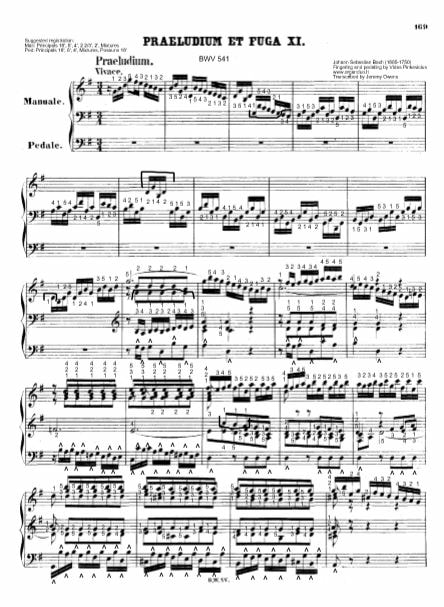

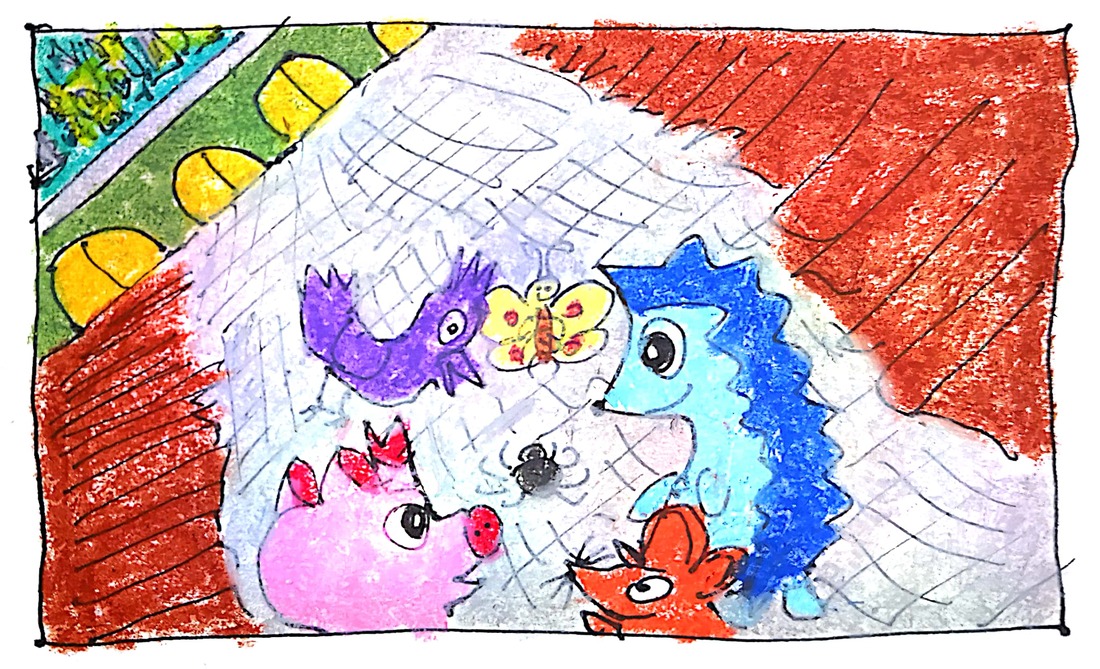
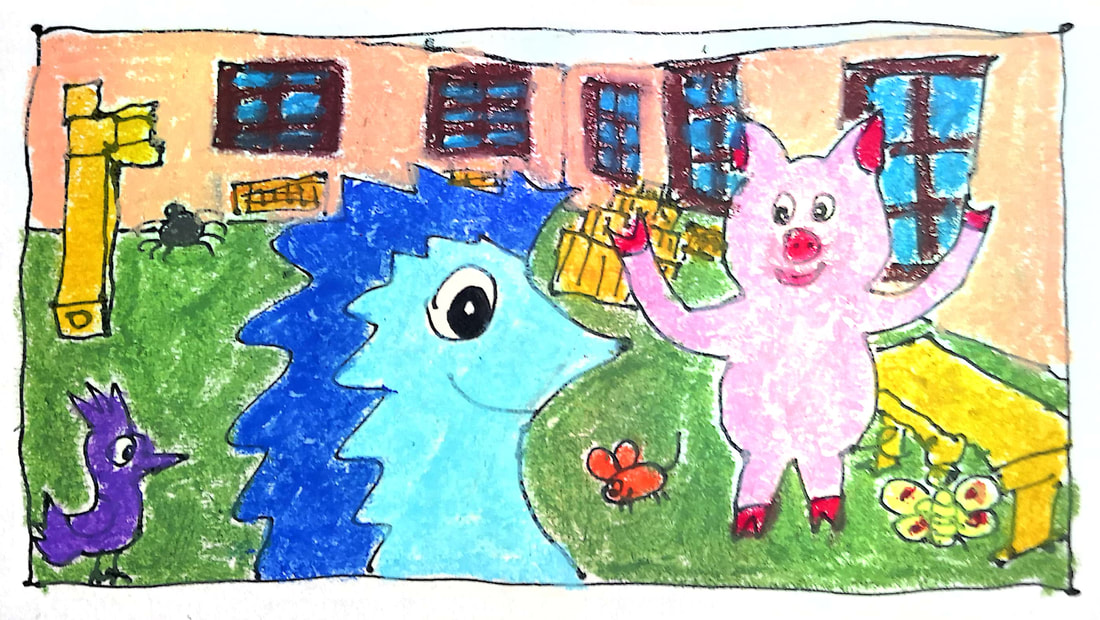

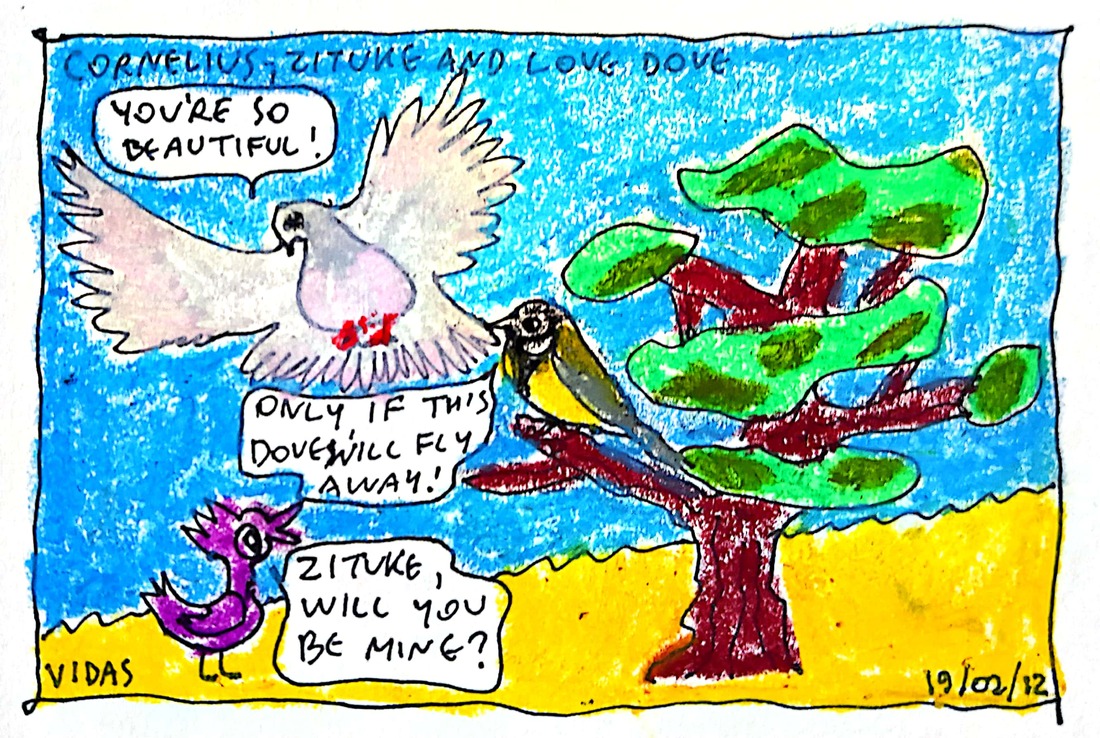
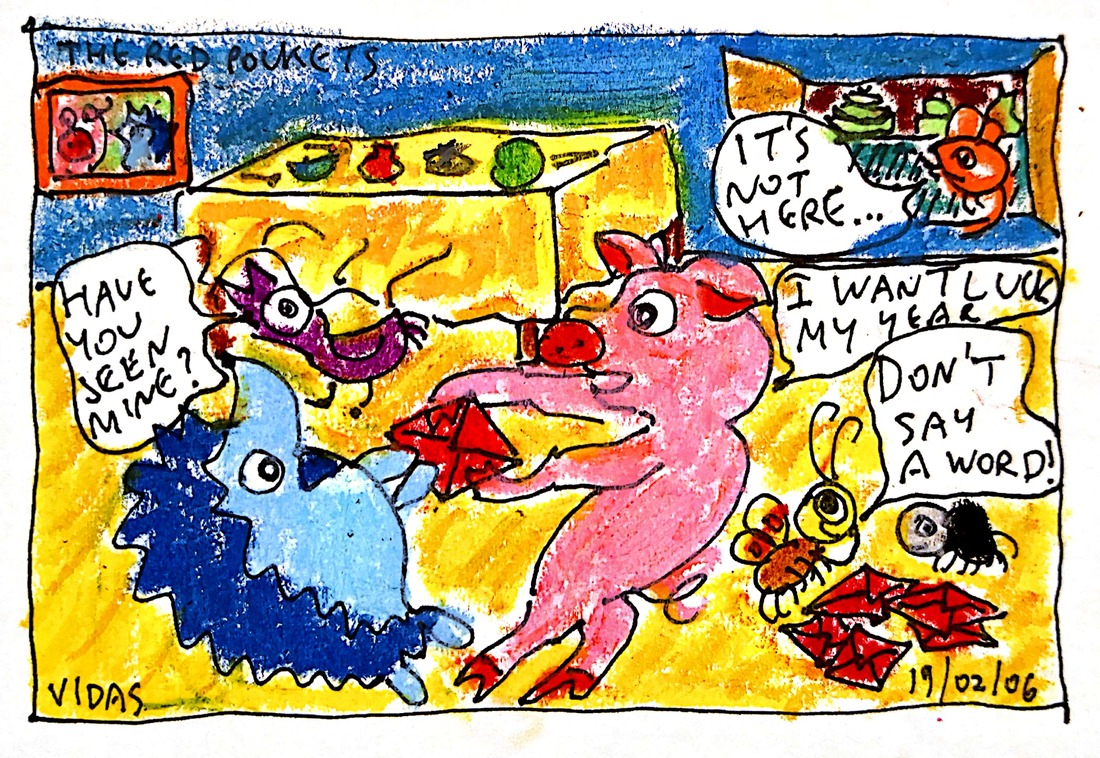





 RSS Feed
RSS Feed